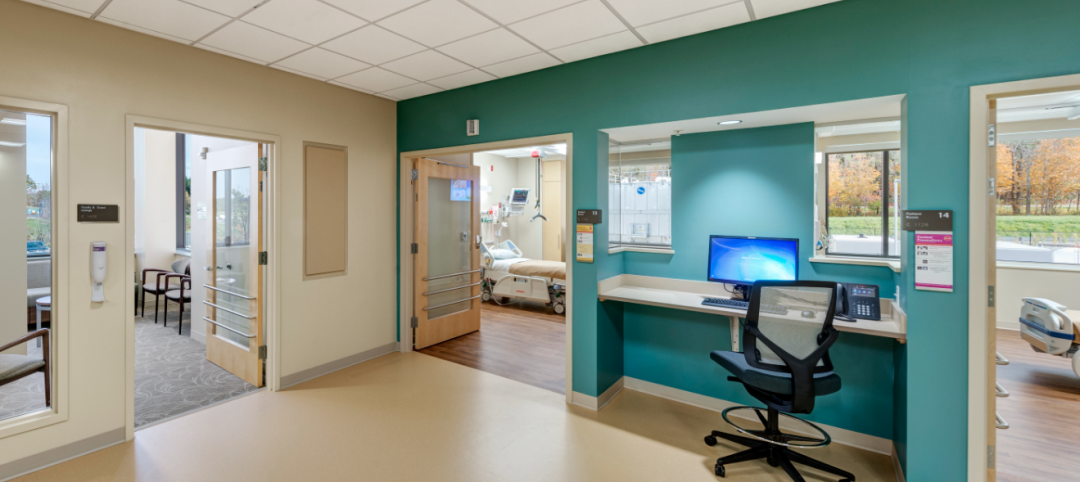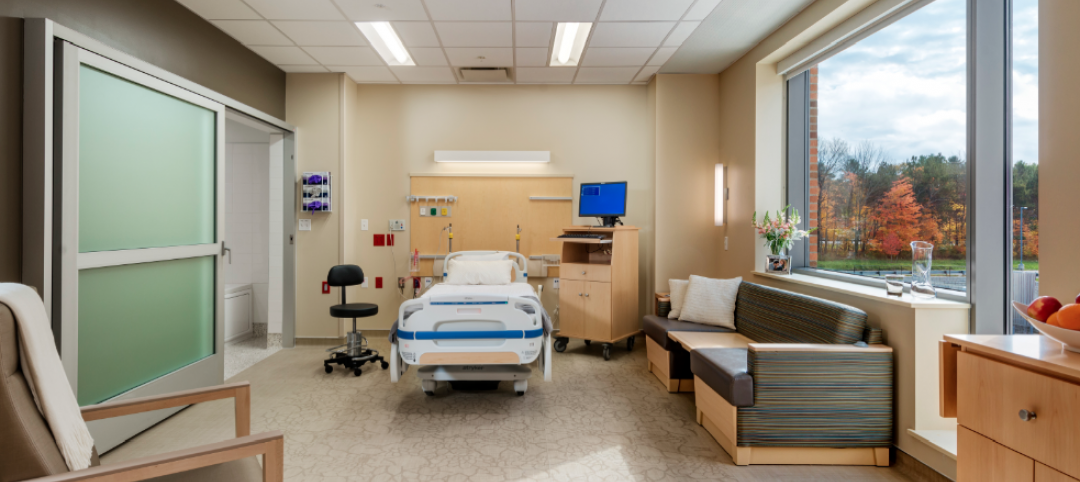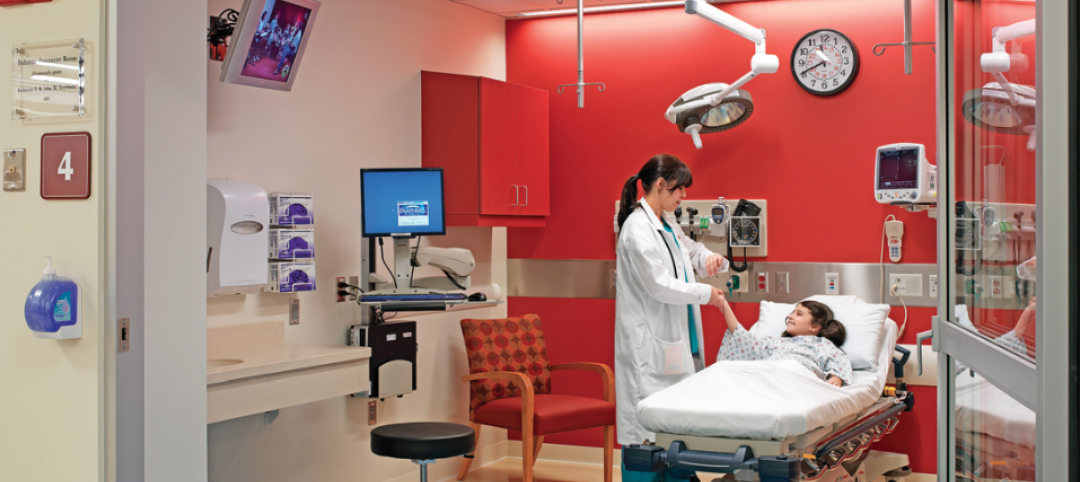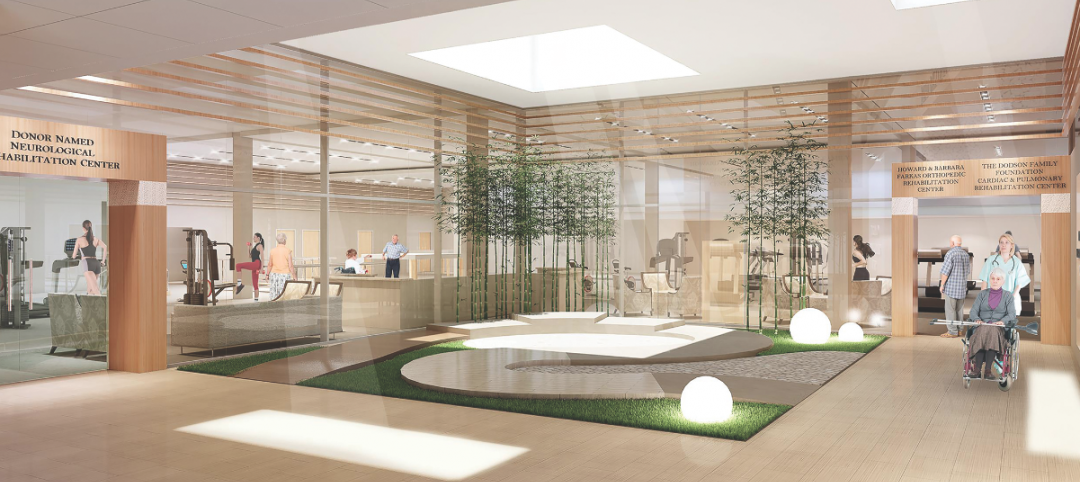Grumman/Butkus Associates (G/BA), a firm of energy efficiency consultants and sustainable design engineers, has released the results of its 2014 Hospital Energy and Water Benchmarking Survey, focusing on healthcare facilities’ resource usage trends and costs for calendar year 2013.
Since the survey was initiated 20 years ago, hospitals’ overall fossil fuel use has trended downward, but electricity use isn’t declining much. The average combined Btu/ft2 for facilities in the survey (electricity plus gas/steam) was 248,456, at a cost of $3.27/sf, compared with 235,731 Btu/sf and $3.09/sf in the 2013 survey (2012 data). Harsh Midwestern winter weather patterns undoubtedly had an adverse effect on energy consumption for hospitals participating in the 2014 survey.
Carbon footprint results have stayed fairly steady over time, at about 60 pounds of CO2 equivalent per sf per year. Water use is gradually declining, currently averaging just over 50 gallons per square foot per year (compared with nearly 70 gallons/sf/year a decade ago).
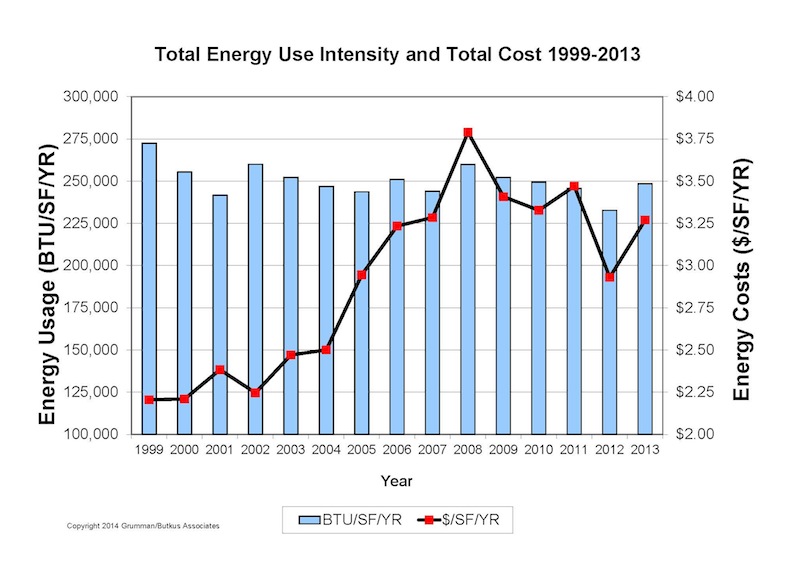 Hospitals’ energy costs per square foot (red boxes) have fluctuated greatly since 1999. Energy use intensity (Btu/sf/year) has drifted slightly downward but rose fairly sharply in 2013, probably due to inclement weather. ©2014 Grumman/Butkus Associates.
Hospitals’ energy costs per square foot (red boxes) have fluctuated greatly since 1999. Energy use intensity (Btu/sf/year) has drifted slightly downward but rose fairly sharply in 2013, probably due to inclement weather. ©2014 Grumman/Butkus Associates.
“Hospitals are under tremendous pressure to reduce operating costs,” says G/BA Chairman Daniel L. Doyle. “Reducing energy and water usage not only helps hospitals cut operating costs, but also helps them reduce the environmental impact of their operations.”
The survey has provided a free annual benchmarking resource since its initial release in 1995. Hospitals are invited to participate without charge by submitting responses to a short list of questions. Information for this edition, covering calendar year 2013, was provided by 102 hospitals located in Illinois (54), Wisconsin (29), Michigan (7), Minnesota (4), Indiana (3), and several other states.
“Hospitals have been investing in efficiency measures and making progress, but have much further to go," says Doyle “Electrical energy reduction measures such as lighting retrofits are being offset by the introduction of more and more electronic imaging equipment and fully digital recordkeeping. Though some of the low-hanging fruit is gone, there are still many cost-effective opportunities remaining for reducing energy usage and costs. The downward trend in water usage reflects a movement to eliminate city-water-cooled equipment, as well as the use of low-flow and occupancy-based plumbing fixtures. Again, there is still much room for improvement.”
Full results and analysis, as well as information about participating in the 2015 survey, are available at the firm’s website: http://grummanbutkus.com/why-we-excel/hospital-energy-water-survey. For additional information, contact Doyle (ddoyle@grummanbutkus.com) or Julie Higginbotham (jhigginbotham@grummanbutkus.com).
Related Stories
Healthcare Facilities | Sep 21, 2015
5 reasons healthcare organizations are implementing finish standards on construction projects
The desire for improved patient satisfaction, staff retention, and turn-key maintenance are among the top reasons more healthcare groups are implementing finish standards in their spaces, according to VOA Associates' Lauren Andrysiak.
Healthcare Facilities | Sep 11, 2015
Health Product Declaration Collaborative releases updated HPD Open Standard – Version 2.0
Advances transparent disclosure of building product contents
Healthcare Facilities | Aug 28, 2015
Hospital construction/renovation guidelines promote sound control
The newly revised guidelines from the Facilities Guidelines Institute touch on six factors that affect a hospital’s soundscape.
Healthcare Facilities | Aug 28, 2015
7 (more) steps toward a quieter hospital
Every hospital has its own “culture” of loudness and quiet. Jacobs’ Chris Kay offers steps to a therapeutic auditory environment.
Healthcare Facilities | Aug 28, 2015
Shhh!!! 6 ways to keep the noise down in new and existing hospitals
There’s a ‘decibel war’ going on in the nation’s hospitals. Progressive Building Teams are leading the charge to give patients quieter healing environments.
Mixed-Use | Aug 26, 2015
Innovation districts + tech clusters: How the ‘open innovation’ era is revitalizing urban cores
In the race for highly coveted tech companies and startups, cities, institutions, and developers are teaming to form innovation hot pockets.
Healthcare Facilities | Aug 19, 2015
5 brand-building strategies in the outpatient environment
No longer coasting off of reputation, leading organizations are using new ambulatory care centers to re-brand for the future of healthcare, writes CannonDesign's Jocelyn Stroupe.
Healthcare Facilities | Aug 18, 2015
Transforming the patient-clinician experience in retail healthcare: 5 'flips' to consider
Flip the Clinic is a Robert Wood Johnson Foundation project invented to transform the patient-clinician experience. In their language, “flips” are actionable ideas for change, writes Gensler's Tama Duffy Day.
Giants 400 | Aug 6, 2015
GIANTS 300 REPORT: Top 75 Healthcare Construction Firms
Turner, McCarthy, and Skanska top Building Design+Construction's 2015 ranking of the largest healthcare contractors and construction management firms in the U.S.
Giants 400 | Aug 6, 2015
GIANTS 300 REPORT: Top 80 Healthcare Engineering Firms
AECOM, Jacobs, and Burns & McDonnell top Building Design+Construction's 2015 ranking of the largest healthcare engineering and engineering/architecture firms in the U.S.





